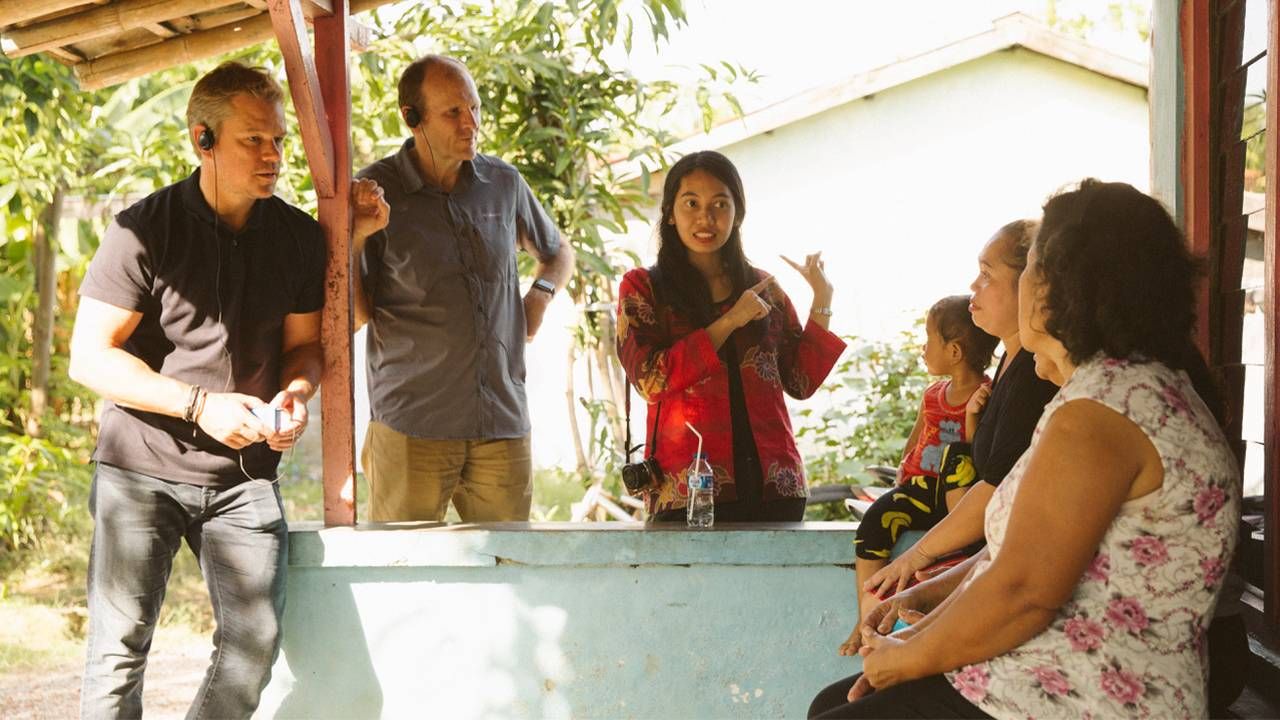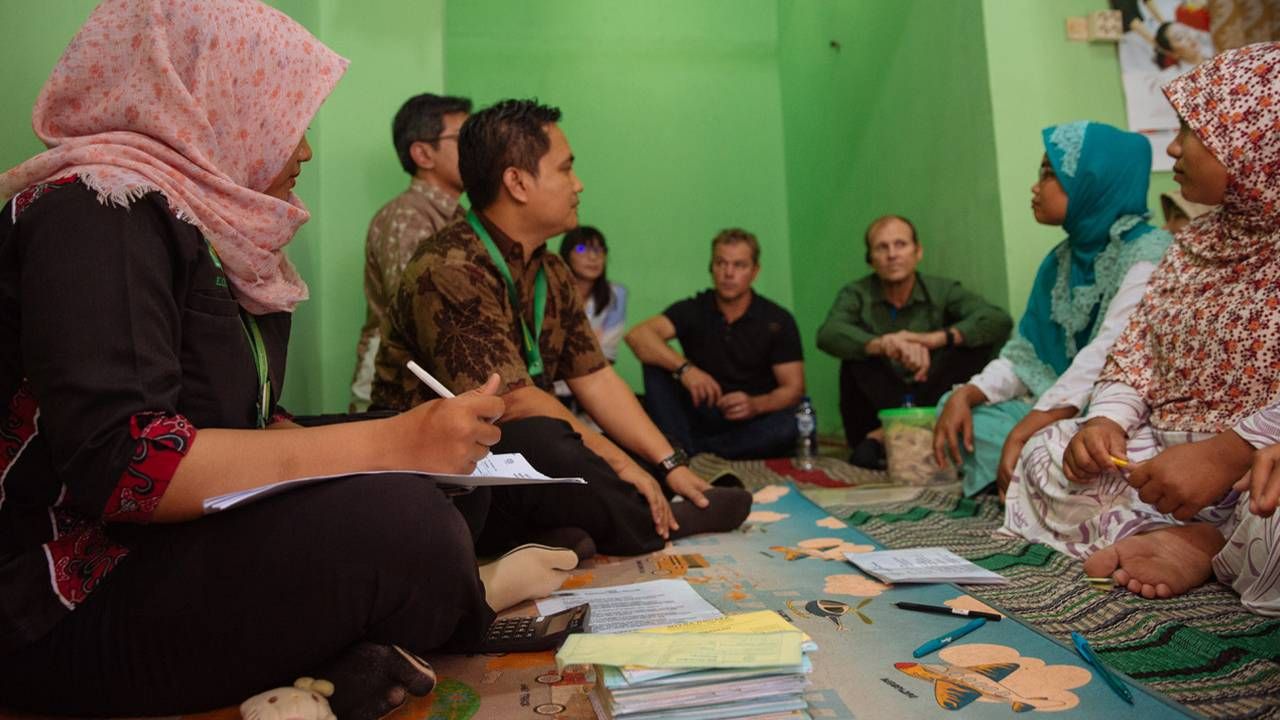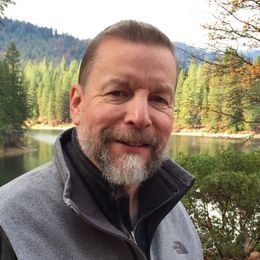Matt Damon's Real Life 'Last Duel'
The Gen X actor goes all-in on a global water crisis
With some notable exceptions, such as Flint, Michigan, most Americans tend to take it for granted. We open a tap, it comes out, usually clean and drinkable. But for about one in ten people globally, that's not an option; there's no clean water source nearby. About 1.7 billion people — more than a fifth of the world's population — have no toilets or reliable sanitation.
These are the challenges that brought Gary White and Matt Damon together.

Yes, that Matt Damon. He has been a social media target lately for his controversial cryptocurrency ad, but far fewer people seem to be aware of the extent to which he'd been a force for good in the world.
In addition to being a top box office draw, Damon is a certifiable water geek. A decade ago, White, now 59, and Damon, 51, founded Water.org, a global organization that has used micro-lending to elevate the lives of some 43 million people.
The two have chronicled their efforts and their personal epiphanies along the way in "The Worth of Water: Our Story of Chasing Solutions to the World's Greatest Challenge," now in bookstores.
"Matt and I both kind of have this entrepreneurial streak in us, and when you're trying to solve a problem as big as this, you've got to always be looking at it from new angles."
Next Avenue spoke to Damon and White about their work and the remaining challenges ahead. Their responses have been edited for length and clarity.
Next Avenue: Even though people like Bill Clinton have been talking about it for years, I think most Americans would be surprised to learn how many people don't have that simple necessity readily available to them.
Gary White: Yes, and even more so with sanitation, right? It robs them of their future in terms of their economic development. If kids aren't in school because they're having to walk and collect water [or] people who are sick aren't able to show up at work, may lose their job or they aren't able to grow food for their families because of the water-related diseases that keep them you know, in hospital. So it's all of these things that really add up to water being a foundational element, not just to live, but to be able to have an economic future, where you can thrive.
Matt, in your self-deprecating way, you've identified yourself as the "face of the global toilet issue." That's a unique approach to personal branding. You also write that water and sewage are the "least sexy of all causes" — so why this, of all the places to plant your flag?
Matt Damon: Bono [of U2 fame] co-founded an organization called DATA to combat poverty and disease in Africa. DATA organized a trip for me to learn about the underlying causes of poverty. It was during that trip that I was struck by water, the enormity of it, and how water and sanitation really underlined everything. We were engaging with extreme poverty [and] you simply cannot solve poverty without solving water and sanitation.
So, Gary, in trying to sell this unsexy topic to the world, it probably didn't hurt to have this little-known guy named Matt Damon walk up to you and decide to jump on board. Apart from his obvious celebrity value, what makes him such a good fit for this endeavor?
GW: Well, first, because he cares about people deeply and he cares about issues of social justice. Second, he's one of the smartest people I've ever met, and he really can dig into these issues with us. You know, when we're traveling, doing field site visits, he has the ability to kind of grasp this crisis and really has become one of the world's leading water experts after working on this issue for more than a decade now.
Matt and I both kind of have this entrepreneurial streak in us and when you're trying to solve a problem as big as this, you've got to always be looking at it from new angles. And, you know, we both realized that wasn't gonna happen just by raising a lot of charity dollars and drilling wells and cutting ribbons. We knew we had to create some systemic change in terms of how these programs are financed and designed.
The subtitle of your book calls water the "world's greatest challenge." Most environmentally-aware people would probably say it's climate. Matt, do you see the two as competing or interwoven?
MD: Absolutely interwoven. Climate change threatens water and sanitation security for us all. Climate threats — like rising sea levels and more frequent extreme events like floods and droughts— affect the water systems we all rely on. No one is immune to climate change, and those living in poverty will feel it first and worst.
"No one is immune to climate change, and those living in poverty will feel it first and worst."
Better water systems are one of the smartest investments we can make in our climate. That's because the old systems they're replacing waste water; utilities in developing countries lose, on average, thirty-five percent of their water to leaks. And globally, waste and wastewater generate more greenhouse gasses each year than all the cars in the United States put together. Resilient systems won't just help us adapt to climate change — they'll help us mitigate it.
And you say you spent years chasing the wrong answer to this problem before you stumbled on the right answer. What's the right answer, in a few words?
GW: I wouldn't necessarily call it a wrong solution but maybe an incomplete solution of assuming the need was charity and kind of doing things for people. What we recognize is that it's really access to capital, to small affordable loans that most people who lack these services need in order to get those services.
And so what we had to do was just nudge the financial markets, particularly the microfinance markets, towards people who knew what they wanted in order to solve their water crisis. They knew the pump that they wanted, or the connection to the utility, the particular type of toilet that they wanted, or the water filter, they knew all those things, and those things are oftentimes available. They just lack the upfront capital to be able to secure them.
MD: There's one more thing we really want your readers to know: the people affected by the water crisis are the very same people who can lead the solution. The biggest breakthrough we had at Water.org was simply to invest in them. And because of that, today 43.7 million more people have access to water and sanitation. They are breaking the cycle of poverty, lifting up entire communities, and making our economies more resilient to global shocks like pandemics and climate change.
Another phrase that jumped out at me from the book: "When clean water is unavailable, human progress is impossible." What do you mean by that, especially with respect to girls and women?
MD: In urban and peri-urban communities, women are taking time away from jobs in order to go stand in a line and get water. Girls — millions of them — are missing days of school because they go out and they collect water for the family. If you think about it, you can see the ripple effects are incalculable.
GW: If you look at who's responsible for doing water collections around the world, it's almost uniformly women and girls, spending all their time collecting water; two hundred million hours will be spent today by women and girls collecting water. So that's every day. But through access to finance, to be able to make the investments they need for their family and being able to have a reliable source of water, gives them more financial resources for their family.

You both seem to be "twin sons of different mothers," (to borrow an album title from the '70s). But truly, you both seem to draw your sense of social conscience & imperative from your mothers. How did your mother instill this in you?
MD: My mom, Nancy Carlsson-Paige, learned from her travels how hard it was to truly understand the complexities of life in a country where you've never lived, to appreciate a set of circumstances so different from any you've ever faced, or to anticipate the consequences of any ideas you bring from the outside. The caricature of the crusading liberal is pretty familiar. But it was clear to me that my mom wasn't crusading. She was wrestling—with herself and her own hesitations. She was working hard to avoid the traps she saw all around her. She was trying to be humble, never presumptuous, trying to make sure she never imagined, even subconsciously, that she knew more about the circumstances of these Salvadorans or Mexicans or Guatemalans than they did themselves. And so, armed with self-awareness, at least, she got back on a plane to see what she could do.
But a lot of time — years, actually — passed between having those conversations with my mom and applying those lessons myself.
Matt, you write that you find cringeworthy the notion of movie stars saving the world (I like your phrase, 'photo-op philanthropist'). How do you reconcile that with the work you're doing and tread the delicate line of 'getting involved in an issue that affects communities you are not a part of?'
MD: This issue needs attention and investment to be solved. It is unconscionable that a child dies every two minutes from a water-related disease. I will do what I can to get other people to talk about this issue and to get them to care about it and to do something about it. I hearken back to something Paul Newman said to me, years ago, which was about shameless exploitation for the common good.
Empathy fuels our journey. We cannot look away from the injustice of it all. We are privileged to recognize that there's a solution and we have a shared ability to bring resources to the problem.
We want to nudge the global financial industry towards seeing people living in poverty not as a problem to be solved, but as a market to be served. Our goal is to connect resources to local knowledge and action to flip the cycle of poverty into a cycle of opportunity.
Have you kept in touch with some of the people whom you've met in the course of your work? Is there a particular person or situation that has really stuck with you?
GW: For sure. There was a woman I met in Uganda. She just goes by the name, Mama Florence, she's a grandmother — probably in her early seventies. She took out a loan from one of our local partners — about three hundred dollars — to have a well installed with a pump at her house and a water tank. Before that she was spending, you know, much of her day on a bicycle riding around trying to collect water for her. She was able to water a garden, grow vegetables, she was able to use some of the vegetables to feed to the pigs that she was now raising and selling.
"I will do what I can to get other people to talk about this issue and to get them to care about it and to do something about it."
Then she started making bricks with the clay soil and the water that she had available to her and selling those. And then she built an addition onto her home, some rooms that she could rent out. So, you know, you can just see the potential that unleashed for someone like her. That's just access to water. That's that foundation that you can then go and build all these things on top of.
MD: My last field visit was to the Philippines. Janine is a mother of three we met in the Philippines right before the pandemic started. Janine was so determined to provide for her family that she made an incredible sacrifice: she left the country for a period of time to get a higher-paying job abroad. In Janine's community, that was not an unusual decision to make. But that didn't make it any less difficult. Janine missed years of her child's life. And her sacrifice gave her family the start they needed. When she got home, she was able to get and pay back small loans to build decent living quarters, to start a grocery business, and — at long last — to get a water connection.
(For a glimpse into Matt Damon's thinking about taking water for granted, check out his 2002 film, "Gerry," about an ill-fated day hike in Death Valley.)
With all due props to the gains that you and Gary have made, the numbers of people still without clean, convenient water and sanitation are staggering. Do you sometimes feel like Sisyphus? And how can you be so optimistic that you can eradicate this problem in your lifetime?
MD: I am optimistic. It's just a money problem. We're not waiting for an innovation that will solve the problem. What's needed is more investment. Not in perpetuity, but enough to set a virtuous cycle fully in motion. Once the engine starts, it generates its own momentum. With WaterCredit, every loan that is repaid goes back out again which drives down the cost per person.
By the way, Gary, Matt confesses in the book to you being his second great "bromance." I take it you're okay with that.
GW: Oh yeah. I don't know if Ben Affleck is, but I'm okay.
Editor’s note: Matt Damon and Gary White say all proceeds from the sale of "The Worth of Water" go to support the work of Water.org, which also accepts individual donations. Matt Damon provided his responses by email, while shooting his latest film, "Oppenheimer," a historical drama set amidst the dawn of the nuclear age. It's scheduled for release in the summer of 2023. He declined to answer questions about the film or about his controversial ad for crypto-currency that premiered during the Super Bowl.

Read More

